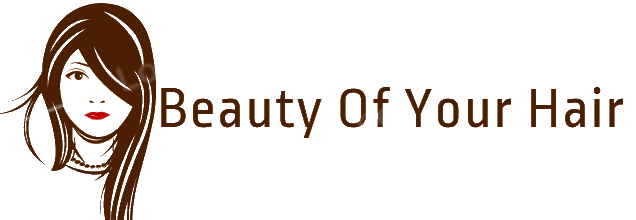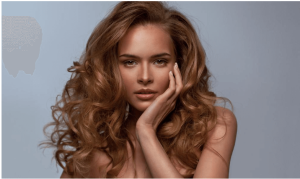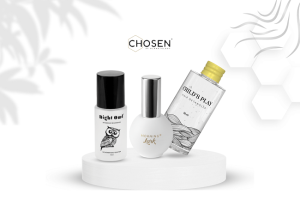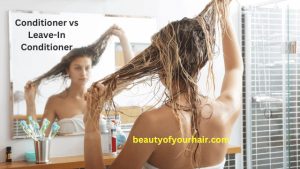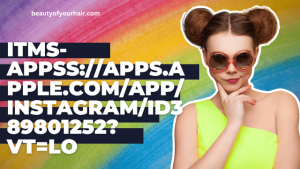Can Essential Oils Treat Your Oily Hair

Essential Oils
Isn’t your hair a little bit too greasy to caress? If so, it might be caused by your scalp’s excess sebum production. This oily-hair problem, both common in men and women, can make you lose your hair strands if left untreated. This hair loss issue is the primary reason why clarifying hair growth shampoos exist and target greasy hair and scalp.
People who have oily hair would often avoid applying oil-based substances on their hair and scalp in fear of adding fuel to the fire, making your hair even greasier. However, this assumption is not entirely correct. As a matter of fact, various essential oils are known to stabilize your scalp’s natural oil production. These plant-derived oils do not only moisturize your locks, but they do also provide sufficient nutrients for your growing tresses.
Can essential oils really treat your oily-hair problem, and how do they do that? Learn how hair oils can moisturize your locks without aggravating your scalp problem.
Essential Oils for Your Oily Hair and Scalp: Why You Need Them for Your Locks
Table of Contents
Oil-based hair products aren’t the root causes of your oily-hair problem, but they can worsen your hair fiasco. In reality, women suffer from having greasy hair because of your sebaceous glands’ overproduction, which can be triggered by various factors: hormonal imbalance, stress, medications, diet, and lifestyle.
Contrary to people’s beliefs, oil is effective in removing grease. Thus, using essential oils is sufficient to eliminate your hair and scalp’s greasiness since these plant-derived oils can easily break down sebum. As a result, they prevent oil build-up on your pate. Most essential oils are also antimicrobial and antifungal, preventing bacteria and fungi from feeding on your natural oils.
If you’re eager to learn more about controlling your hair’s greasy problem, check out four essential oils that you can use for your oily hair and scalp.
1. Lavender Oil
Dandruff problems usually occur because of an oily scalp. Therefore, it would be best to apply lavender oil on your scalp to hit two birds with one stone. This essential oil does not only help unclog your scalp’s pores to clear your hair’s environment, but its antimicrobial properties also prevent bacteria from invading your scalp and causing more hair growth problems. To use lavender oil, dilute it with a carrier oil to reap its anti-grease benefits.
2. Rosemary Oil
Excess sebum on your pate can trigger scalp problems, thereby adversely affecting hair growth. One way to keep these issues at bay is to use a product that can balance your scalp’s oil production. With rosemary oil, you can control your scalp’s overactive sebum production while protecting your hair against moisture loss. Your scalp also gets to absorb rosemary oil’s antioxidants, which are healthy for hair follicle growth.
3. Chamomile Oil
If you want to tame your sebaceous glands, chamomile oil is your go-to essential for stabilizing sebum production and regulating your natural oils’ acidity level. It’s also useful for soothing your itchy scalp caused by dandruff flakes. Chamomile oil also has other hair growth benefits, such as providing vitamins C and E for hair follicle nourishment.
4. Cedarwood Oil
You might not have heard about this hair growth ingredient, but cedarwood extract can be your great ally in normalizing your scalp’s oil production. Cedarwood oil extracted from the barks, leaves, and berries of cedar trees also has antimicrobial and anti-inflammatory properties that can protect your scalp against dandruff, eczema, dermatitis, and psoriasis, all of which can trigger hair growth problems. For frequent use, add a few drops of cedarwood extract to your favorite hair growth shampoo. This combination will help balance out the drying effects of shampoo by providing your hair with sufficient moisture.
Use Oil to Fight Oil.
Oil beats oil. So instead of skipping hair-moisturizing or oil-based products, you should use hair growth products enriched with essential oils to stabilize your overactive sebaceous glands. Not only will your scalp’s oil production go back to normal, but your hair will also grow healthier, thanks to the hair growth nutrients that you can get from these extracts. However, if you opt to slather an essential oil directly on your scalp, limit the amount, and don’t forget to mix it with a carrier oil (e.g., almond oil, coconut oil, jojoba oil) to avoid irritations. So, what are you waiting for? Say goodbye to your oily-hair problem by using essential hair oils.
